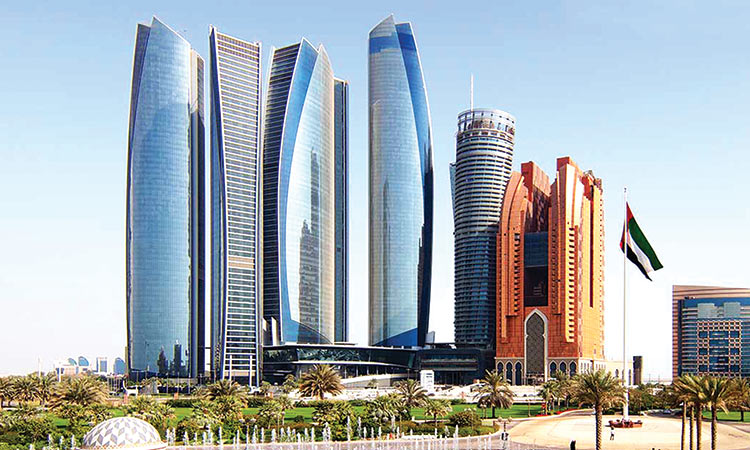
The UAE was ranked among the 20 leading countries in 16 global competitiveness indexes related to foreign trade in 2020, marking a new achievement and consolidating the country’s status as a key centre of international trade.
The Federal Competitiveness and Statistics Centre documented the international references confirming these achievements, most notably the World Competitiveness Yearbook (WCY) published by the International Institute for Management Development (IMD), the Global Competitiveness Index 4.0 issued by the World Economic Forum (WEC), the Logistics Performance Index (LPI) issued by the World Bank, the Global Innovation Index issued by INSEAD, and the Legatum Prosperity Index issued by the Legatum Institute.
The UAE’s competitiveness analysis based on the global indexes highlighted the fact that its achievements were results of a range of factors, including economic planning based on a strategic vision that encourages competitiveness, which enabled the UAE to attain an advanced regional and global status in merchandise trade, as documented by the Ministry of Economy’s reports. The UAE is ranked third in the world and first in the Arab region in terms of re-exports, in addition to being a top 20 country in terms of both exports and imports.
Various global competitiveness reports highlighted several positive indicators underscoring the ongoing momentum of the country’s trade with the rest of the world in 2020, despite the global slowdown resulting from the lockdowns associated with the pandemic.
Moreover, recent figures published by the Federal Competitiveness and Statistics Centre pointed out that the value of the country’s non-oil foreign trade bypassed the Dhs1 trillion mark in the first nine months of 2020.
The centre’s figures also noted that the value of the UAE’s exports and re-exports outperformed imports in September 2020, bypassing the Dhs76 billion mark while the trade account surplus between the UAE and Arab countries amounted to AED136.5 billion in the first nine months of 2020.
The Arab Economies Competitiveness Report 2020 issued by the Arab Monetary Fund (AMF) ranked the UAE the first in the Arab region in the “Trade Openness Index” and the “Current Account Balance Index.”
UAE Participation: The UAE recently participated in the 19th meeting of the Financial Stability Board Regional Consultative Group for the Middle East and North Africa (FSB RCG MENA).
The meeting took place virtually and discussed the risks facing financial stability in the region, and the work programme of Regional Consultative Group (RCG). That, in addition to the initiatives within the G20 roadmap regarding cross-border payments and digital stablecoins.
The UAE was represented by Younis Haji Al Khoori, Under-Secretary of the Ministry of Finance, and Khaled Mohamed Salem Balama Al Tameemi, Vice Governor of the Central Bank of the UAE. Dr. Fahd Al-Mubarak, Governor of the Saudi Arabian Monetary Authority (SAMA), and Rasheed Mohammed Al Maraj, Governor of the Central Bank of Bahrain co-chaired the meeting, where representatives of the ministries of finance and central banks of the MENA countries, as well as representatives from the FSB attended.
During the meeting, Al Khoori presented the latest paper developed by the UAE, which provides guidelines for jurisdictional self-assessment of the regulatory and supervisory arrangements for stablecoins. The paper was presented by the Ministry of Finance to the G20 last year, and was praised by the G20 members and the FSB.
Al Khoori noted that the judicial authorities need to evaluate whether they have the essential regulatory basis to address the risks faced by the current monetary systems related to global digital stablecoins.
“We reiterate the need to activate cooperation and coordination between governments and international organisations to devise international guidelines that support the legislative authorities’ efforts to organise and monitor digital stablecoins, build trust in these transactions, and mitigate the destabilising repercussions of the global financial stability,” he added.
The meeting deliberated the latest updates related to the global financial system, especially in light of the exceptional circumstances that the world is witnessing today due to the COVID-19 pandemic. That, in addition to means of enhancing cross-border payments, where initiatives on implementing the G20 roadmap to improve payment platforms, and the regulatory and supervisory challenges related to digital currencies were presented.
At the end of the meeting, all members reiterated the importance of devising sound regulatory and supervisory frameworks for digital stablecoins arrangements, to benefit from them and facilitate fast, secure, efficient and cost-effective cross-border payments. This is to strengthen financial systems due to the risks to financial stability while supporting and adopting financial innovation.
Current members of the FSB RCG MENA include representatives of ministries of finance and central banks from the Kingdom of Saudi Arabia, Algeria, Bahrain, Egypt, Jordan, Kuwait, Lebanon, Morocco, Oman, Qatar, Tunisia, Turkey and the UAE.












